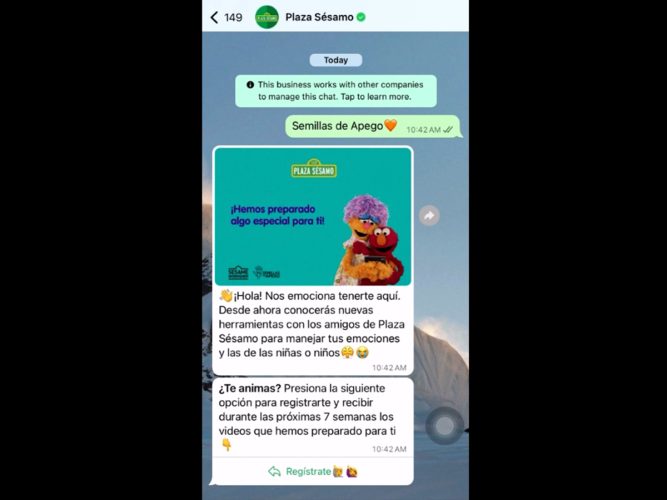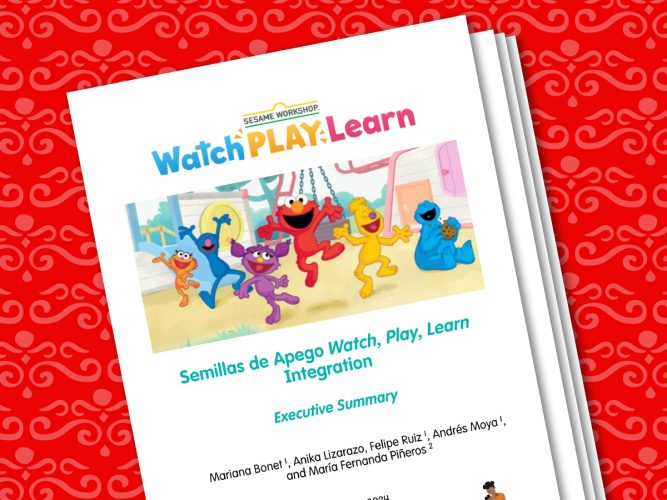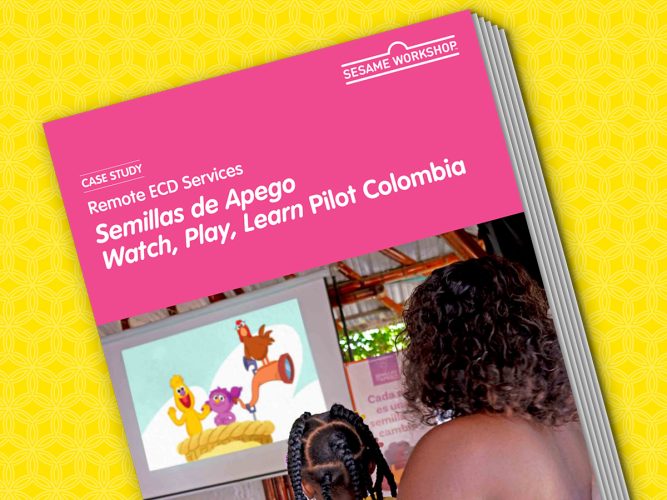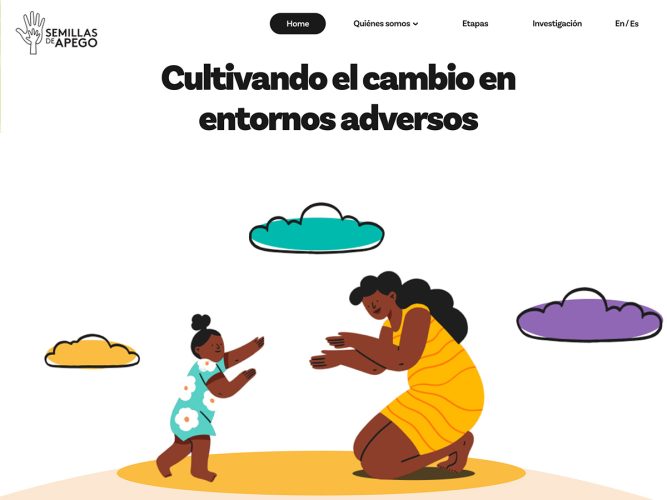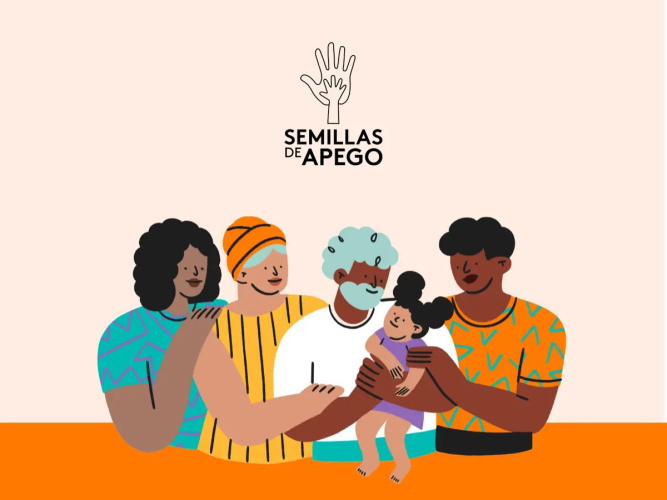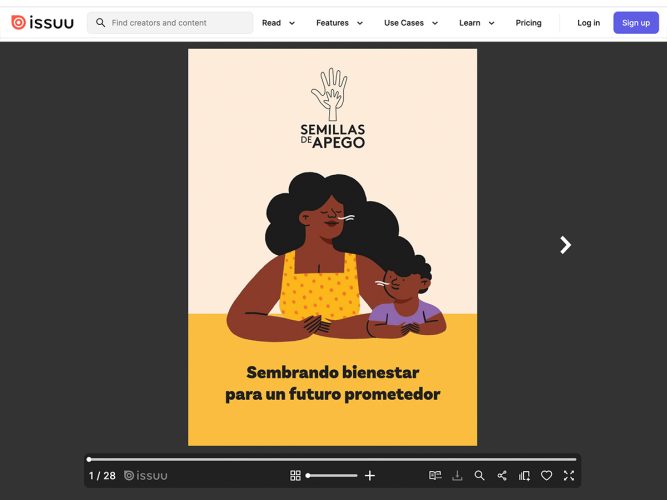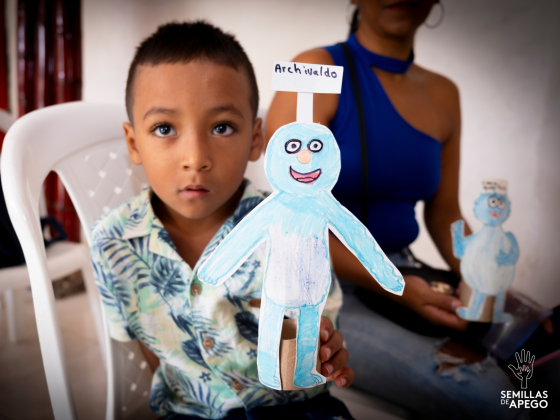
Semillas de Apego: Watch, Play, Learn Integration Pilot in Colombia
Integrating Watch, Play, Learn social emotional learning (SEL) videos into Semillas de Apego’s community-based psychosocial program for caregivers of young children in communities affected by conflict, forced displacement and migration.
Caregivers gather weekly in groups to reflect on how their environment affects their emotional wellbeing, participating in activities designed to process life experiences, reduce the effects of trauma, and foster secure attachment bonds. Watch, Play, Learn: Early Learning Videos that focus on SEL are integrated into the program as a strategy to reach children directly and provide additional tools for caregivers.
The intervention aims to:
- Strengthen caregivers’ understanding of children’s social-emotional development.
- Increase caregivers’ use of age-appropriate social emotional managements strategies for children.
- Strengthen parenting teams.
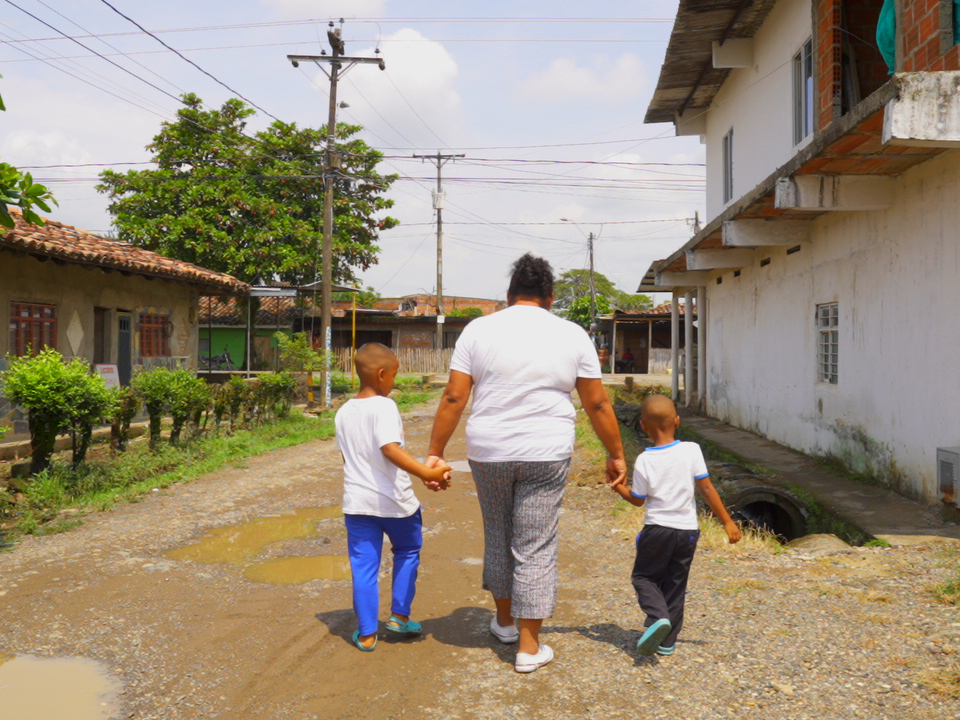
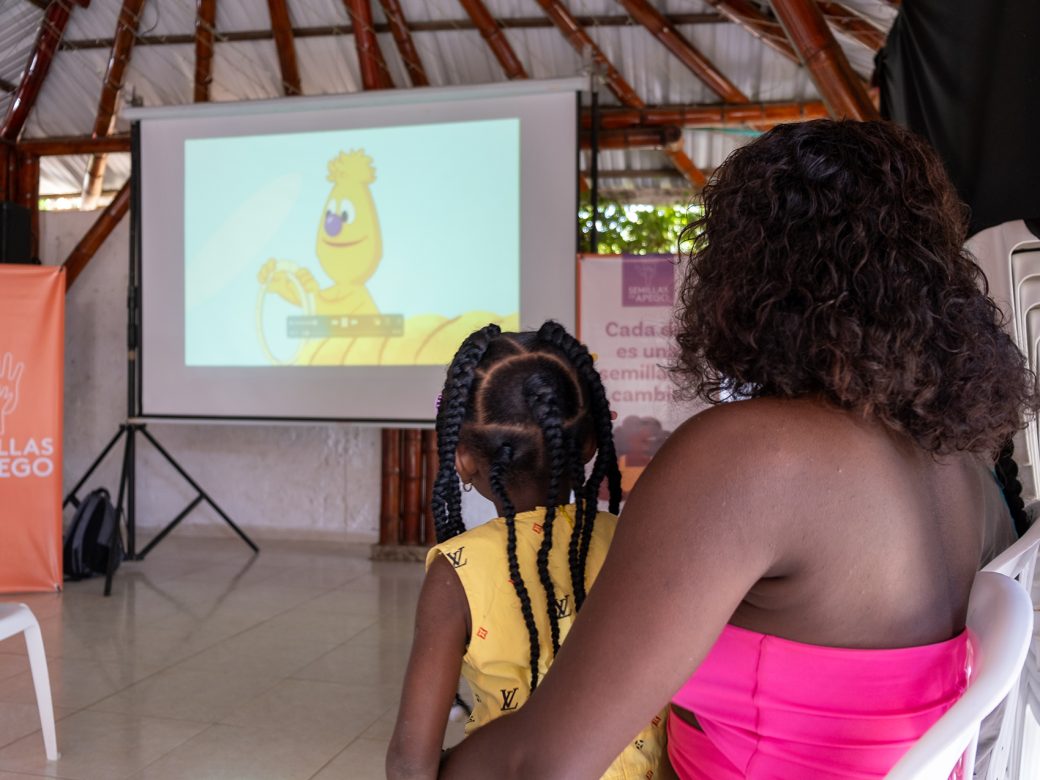
Who we
worked with

Primary caregivers of at least one child five years old or younger, that have been exposed to conflict, forced migration or displacement, or other adverse experiences.
Where we
worked
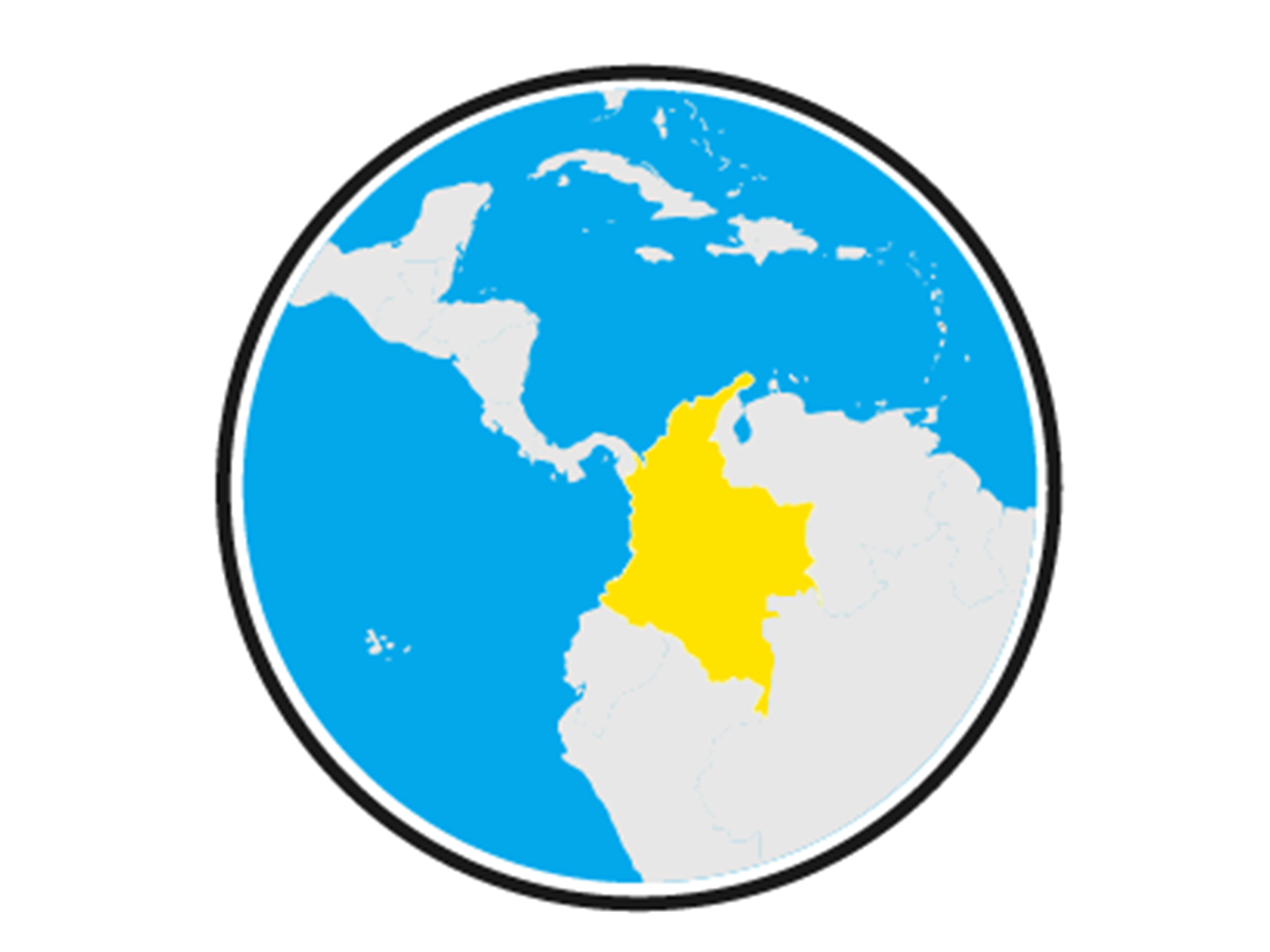
Jamundí and Tumaco municipalities in Colombia
How we delivered content

Caregivers received videos through private Facebook groups or WhatsApp
Frequency
.

Caregivers attend 2.5 hour weekly in-person psychosocial group sessions, and watch videos and practice co-regulation strategies with their children at least once per week in-between sessions
Curriculum and Media
In its 15-session program, Semillas de Apego integrated Watch, Play, Learn SEL videos in the last eight in-person psychosocial group sessions, which focus on the following:
- Sessions seven to 12: Understanding early childhood development milestones and healthy child-parent relationships to promote early childhood development (ECD).
- Sessions 13 to 15: Building support networks and child-rearing (or parenting) teams.
The Semillas de Apego Technical Director collaborated with an education expert from Sesame Workshop and a senior supervisor from the University of California, San Francisco, to conceptually integrate 23 Watch, Play, Learn SEL videos and three visual aids by clustering them into five groups:
- Introduction to Big Emotions (six videos).
- Fear and dealing with challenging situations (one video, two visual aids).
- Helping caregivers relate their child’s behavior to big emotions and identify alternative strategies to deal with these emotions (seven videos).
- Parenting Teams: identifying children’s emotions and strategies (four videos).
- Reinforcing breathing techniques (belly breathing) (five videos, one visual aid).
Delivery and Dosage
Semillas de Apego had an intentional approach to releasing videos and encouraging participation. Caregivers received Watch, Play, Learn content through private Facebook groups. Videos were posted on the private Facebook group each week after the in-person session, with a 15-minute gap between videos. When videos were posted, Semillas sent caregivers messages on WhatsApp with a link to the video, an invitation to the Facebook group, a call to action, and a video preview. Caregivers who did not have Facebook received all the videos through WhatsApp every Friday. Caregivers discussed their experiences watching and using the videos with their children in the following week’s in-person group session.
Caregivers were encouraged to view Watch, Play, Learn videos at least once a week alongside their children. Caregivers received between three and seven videos or visual aids each week.
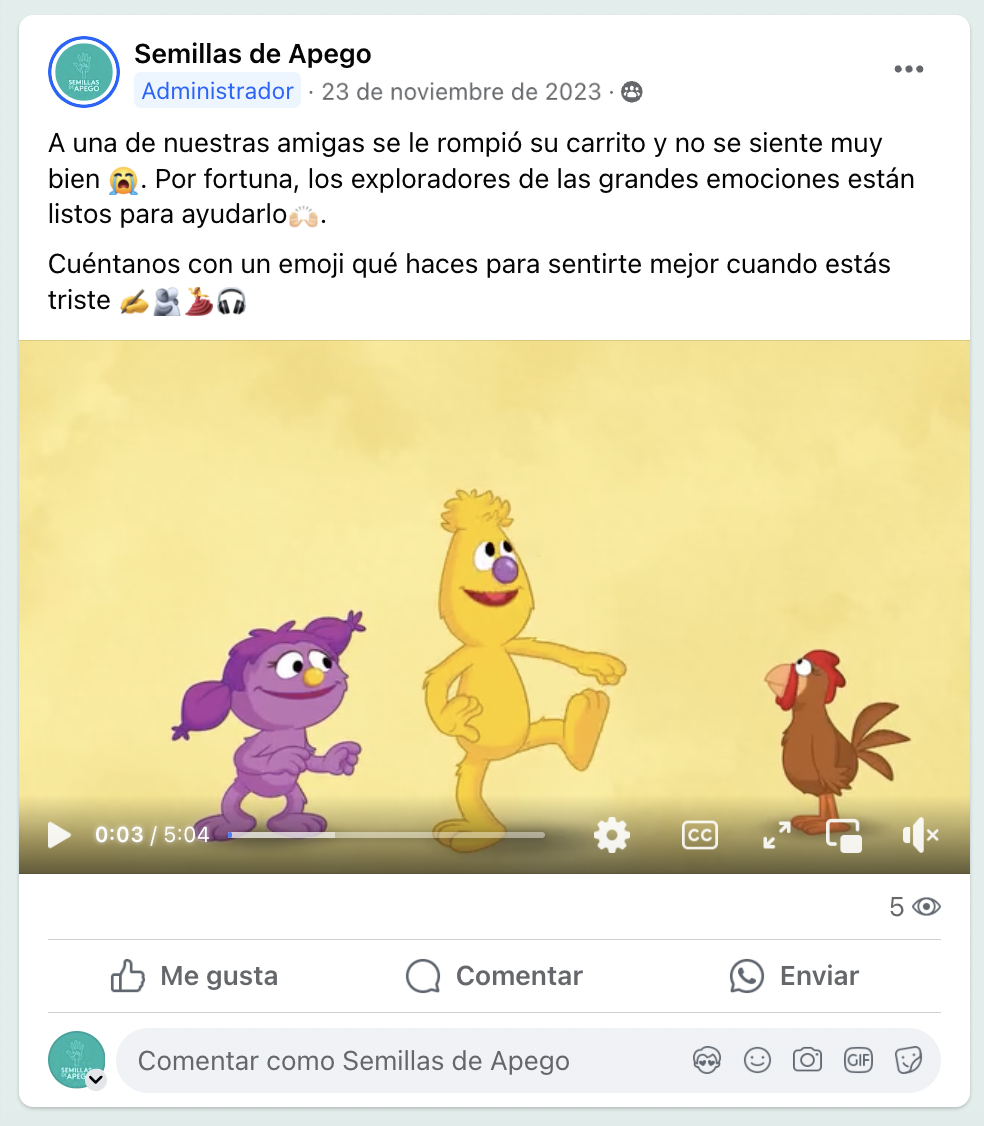
Here is an example of how a Watch, Play, Learn video and accompanying message would appear to a caregiver in a private Facebook group.
Browse through the resources to learn more about delivery mechanisms of this intervention.
Training and Supervision
Semillas de Apego has a comprehensive training program and weekly reflexive supervision sessions with facilitators. Facilitators are often caregivers with some experience leading psychosocial or community groups and have some undergraduate or technical education in areas related to psychology, social work or similar fields.
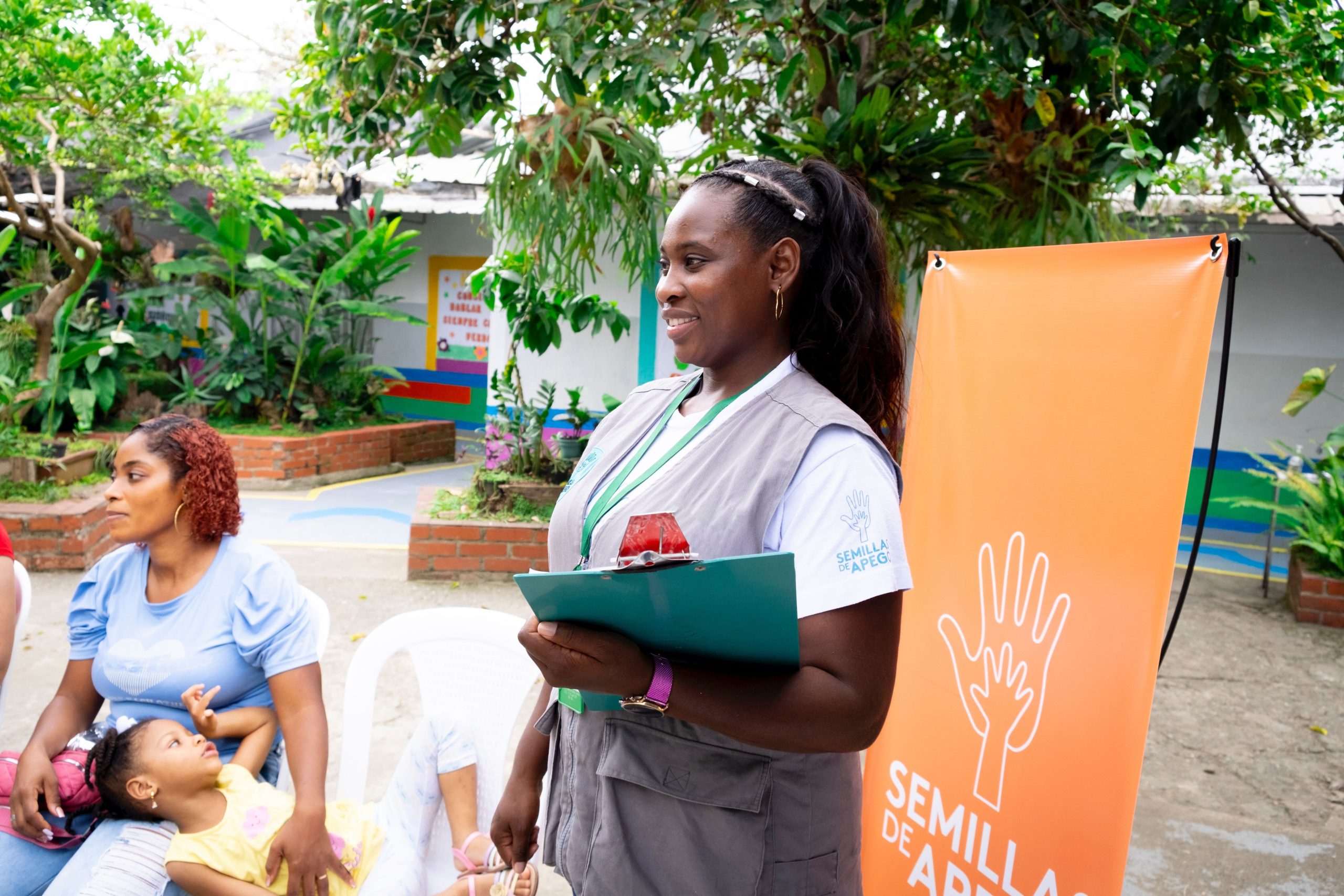
In an initial training, facilitators were introduced to the Watch, Play, Learn resources and how they would be integrated into weeks 7-15 of the Semillas de Apego Program. As part of the training, they viewed videos and the updated session plans and practiced what they would do as part of a session. As part of ongoing coaching, supervisors checked in with facilitators weekly to provide them with guidance to help enable them to support caregivers effectively.
Semillas de Apego organized a meeting with its technical team, who are responsible for executing and managing the delivery of Watch, Play, Learn, to explain the distribution process. The community manager created a guide that outlines a detailed implementation timeline and a step-by-step distribution process for all platforms. This guide was used to train the technical team on how to effectively deliver the videos and engage with caregivers.
Monitoring and Evaluation
Integration of Watch, Play, Learn videos into the Semillas de Apego program was monitored to examine perceived utility and feasibility of using and watching the videos, caregivers’ attitudes toward technology, caregivers’ and children’s engagement with the program, and caregivers’ and childrens’ behaviors. The program reached 420 caregivers and their children age three to five years old.
Semillas de Apego conducted an impact evaluation of the Watch, Play, Learn video integration. The impact evaluation used a cluster-randomized design, with a treatment group that received Semillas de Apego with videos integrated and a control group that received Semillas de Apego only. The total sample size was 311 caregivers clustered into nine treatment groups and 10 control groups.
The impact evaluation highlighted the following:
- Participants found the videos enjoyable, entertaining, and appropriate, with relatable situations.
- Caregivers and children applied emotion management strategies from the videos, leading to improved emotion recognition and regulation.
- Challenges accessing the videos were reported, but mechanisms such as WhatsApp previews and community groups helped overcome these obstacles.
- Participants with access to Watch, Play, Learn content showed (statistically) significant improvements in caregiver-child relationship and early childhood development indices compared to those without access. This indicates that the integration increased capacity for emotional expression and application of emotion management strategies, fostering early child socioemotional development.
Learn more about Semillas de Apego and its impact.
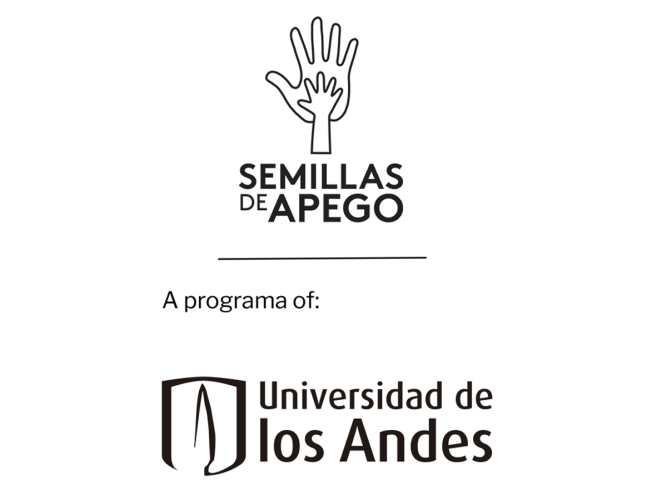
Universidad de los Andes
Semillas de Apego, a program of Universidad de los Andes
